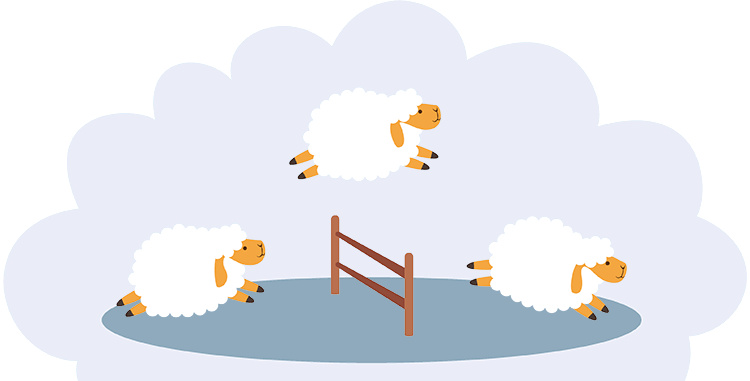Obstructive sleep apnea and excessive sleepiness
In the presence of excessive sleepiness, patients should always be examined for the presence of obstructive sleep apnea , a disease that very often causes this symptom.
If you snore in your sleep, sometimes wake up with a feeling of lack of air, and during the day you are worried about increased sleepiness, then you can first of all suspect obstructive sleep apnea syndrome. Having passed the test for sleep apnea syndrome , you can identify the likelihood of having a disease. The probability of the disease is high if there are three or more signs of the following list:
- pauses in breathing during sleep
- loud or intermittent snoring
- frequent urination at night
- increased daytime sleepiness
- sleep deprivation for more than 6 months
- obesity
- arterial hypertension, especially nocturnal and morning.
If your relatives watching you while you sleep notice long pauses in your breathing, this should be a reason for you to urgently contact a somnologist. An accurate diagnosis of obstructive sleep apnea syndrome with an indication of the severity is established on the basis of polysomnography – Sleep research.
In obstructive sleep apnea, the upper airways collapse periodically, causing a complete or partial cessation of air supply to the lungs . Severe disturbances in gas exchange lead to oxygen starvation and an increased content of carbon dioxide in the blood. Under these conditions, the brain wakes up, and the person fully or partially wakes up to resume breathing. Fragmentation of sleep entails increased drowsiness, and given that breathing stops are repeated every night, then drowsiness increases. In a person suffering from sleep apnea, increased drowsiness becomes constant, it burdens the person himself and his loved ones.
Increased drowsiness becomes a social problem – a person cannot work normally, lead an active life, his interests are limited due to constant weakness and fatigue due to sleep disturbance. Increased daytime sleepiness increases the risk of occupational and road traffic injuries. A person does not have a quick reaction to what is happening around.
In the presence of increased sleepiness, to determine its degree, you can take the Epworth test , in which various situations are proposed to be compared with your ability to fall asleep. The following situations are considered: reading while sitting, watching TV, going to the theater or other events, riding in a car for an hour as a passenger, talking, sitting quietly after dinner, driving a car.
If the answer is “sleep is never possible”, you get 0 points, “slightly likely to fall asleep” -1, “moderately” -2, “highly likely to fall asleep” – 3 points. It is possible to score a maximum of 24 points. The higher the score, the higher the degree of daytime sleepiness.
If you scored from 0 to 5 points – this is the norm, with an initial degree of drowsiness a person scores 6-9 points, with a moderate 10 – 14 points. A pronounced degree of drowsiness is 15–20 points, with an extreme degree of drowsiness, the test result is more than 20 points. If you scored 15 points or more, you are clearly suffering from increased sleepiness, and you need to contact a sleep specialist.
Obstructive sleep apnea syndrome has a negative effect on all organs and systems of the body, aggravates the course of any disease, causes the development of “vicious circles” and serious complications. In this regard, there is a need for modern diagnosis and treatment of this disease. CPAP therapy is the most effective treatment for sleep apnea and can prevent many health problems and eliminate daytime sleepiness.

